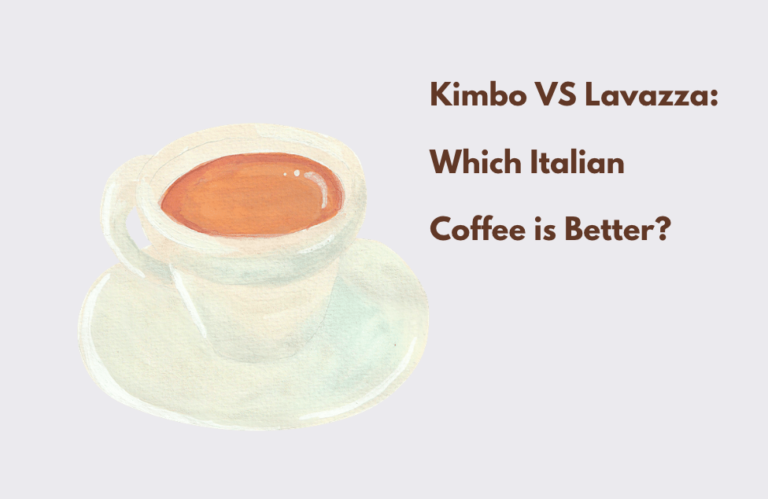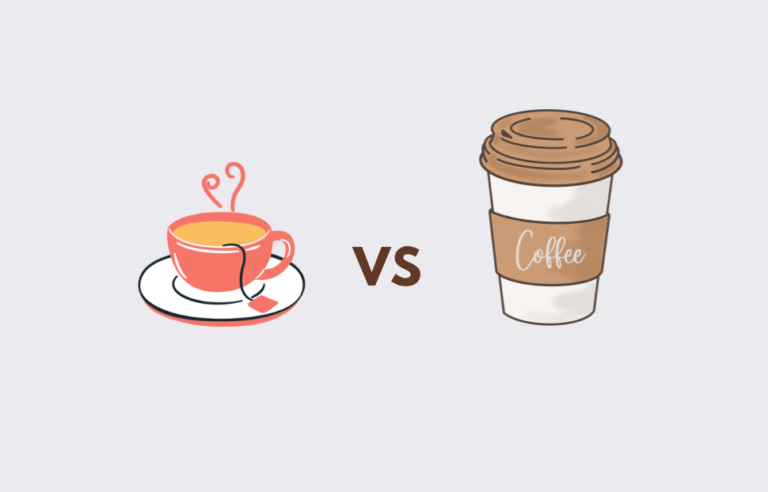

This post may contain affiliate links. As an Amazon Associate and a partner of other brands, I get a small commission if you purchase through my links, at no extra cost from you.
Want to have a sweet tooth without the guilt? This article will show you how to sweeten coffee without sugar.
It’s true that sometimes you want a little something sweet to go with your morning coffee. But if you’re trying to avoid refined sugar, the usual options are limited.
Plus, some of those options may contain unhealthy or expensive ingredients you don’t want in your drink.
This article explores 11 healthy sweeteners that also happen to be super-easy on the wallet.
Don’t let guilt deprive you of a sublime cup of joe!
How To Sweeten Coffee Without Sugar
Best Sugar Alternatives for Coffee
I get you! You want to learn how to sweeten coffee without sugar and want to do in the healthiest way. You’re in luck!
Below are some healthy ways to sweeten coffee every morning without compromising your health and the taste of your cup of joe.
Let’s start!
1. Maple Syrup
One of the best sugar substitutes for coffee is no other than maple syrup!
Rich in healthy omega-3 fatty acids, acatalipylin and magnesium, maple syrup is a natural choice for adding sweetness to coffee without the added calories of sugar.
Best of all, it’s absolutely free from GMOs! As a bonus, it’s quite inexpensive.
However, you should avoid buying highly processed maple syrup from grocery stores.
While this might not sound like something very serious, the highly refined varieties of maple syrup are chemically treated to improve grain yields and shelf life.
These modernized varieties don’t mirror the natural sweetness of pure maple syrup which you get at the country store.
This means these highly refined varieties do not taste like maple syrup at all.
Maple syrup is surprisingly versatile and can be used in countless recipes both savory and sweet when it’s not being poured over pancakes or waffles à la mode.
It also makes a great breakfast condiment when drizzled over toast or crackers.
2. Honey
Another one of the best and healthy ways to sweeten coffee naturally is honey. Honey is one of the best sources of antioxidants in the natural sweeteners world.
If you’re not a fan of its distinct flavor, you can easily replace it with maple syrup in most recipes for muffins, cookies, cakes, and more.
When taking it plain, add some lemon juice to balance out the flavor profile and add some benefits on its own.
Or if you prefer to enjoy it with your coffee without altering the taste, try using raw honey over refined varieties for a naturally uncolored and unprocessed sweetness that does not require added heating or blending.
Honey has been used for centuries as a sweetener, preservative, flavoring, and medicinal ingredient.
3. Monkfruit
Although being slightly bitter, monk fruit is among the most popular and healthy sugar alternatives for coffee.
This product is made with monk fruit extract, which is an allergen-free sweetener. If you can’t handle the taste, look for the monk fruit sweetener blends.
Monk fruit is a non-caloric natural sweetener and contains compounds known as mogrosides which are used as flavorings and sweeteners in many Asian countries.
This is where it got its common name of “Monk Fruit”.
The most potent source of sweetening power is the dried fruit flesh which contains different types of mogrosides including mogrosamine and monatin among others.
4. Stevia
Stevia is touted as one of the most healthful sweeteners in the world.
Stevia is among the safest, most natural, and least processed sweeteners. It is also completely non-allergenic and contains no artificial chemicals or additives.
Unlike table sugar, stevia does not convert to blood sugar so it won’t cause harmful spikes in blood glucose levels.
As a result, it is better for diabetics or people who are trying to cut down on sugar consumption.
Stevia also doesn’t possess any bitter aftertaste, which means you can safely use it in coffee without impacting its flavor in any way.
5. Raw Honey
Raw honey is raw, meaning it’s not heated past the temperature bees would normally create when building hives. This means it maintains the full array of healthful enzymes found in honey.
Raw honey also contains natural enzymes, minerals, vitamins, and antioxidants that will help to improve the overall health of your immune system.
For this reason, raw honey is an excellent option for those who suffer from chronic health conditions like allergies or asthma.
Are you still here to learn how to sweeten coffee without sugar? Let’s continue exploring those healthy ways to make your coffee sweeter.
6. Brown Rice Syrup Substitute
Ever heard of brown rice syrup?
It’s a popular sweetener in raw recipes, and it can even be used in tea and coffee.
It’s also got a lower glycemic index than regular cane sugar so it’s suitable for diabetics.
Used in place of white sugar, brown rice syrup is commonly used by vegans to sweeten things like cakes without compromising taste.
Brown rice syrup has the same sweetness level as sugar so you won’t notice it in your coffee. It also has no calories, no carbs, and is high in fiber. It has a rich molasses taste.
7. Chicory Root
Chicory root is a natural sweetener, and it’s also rich in protein.
It is sometimes used as an alternative for coffee because it has a similar flavor to coffee beans.
It’s more commonly used to make chicory coffee or dandelion coffee, which are blends of chicory root with coffee beans.
Chicory root is made into home remedies for upset stomachs, and it also contains vitamin C.
8. Agave
Agave is an ideal substitute for refined sugar because it has only trace amounts of fructose, the type of sugar found naturally in fruit.
It’s very high in fiber, can be used to sweeten drinks, and also makes a nice addition to your everyday cooking.
Although primarily used for sweetening beverages, agave nectar can be used to sweeten foods like salad dressings or sauces where it’s not pureed or broken down by other ingredients.
Agave is naturally sweet, but it doesn’t last long. This means it needs to be refrigerated, or more of it needs to be added if you prefer it sweeter.
9. Stevia Powder
Stevia powder is made from the Stevia leaf, which has been used for its sweet flavor in Brazil for over 300 years. It looks similar to sugar, but does not have any calories or carbs!
Stevia powder is made from the Stevia leaf, which has been used for its sweet flavor in Brazil for over 300 years. It looks similar to sugar, but does not have any calories or carbs!
10. Coconut Sugar
Coconut sugar is often mixed with cane sugar, making it the perfect alternative to the all-too-common refined white sugar.
It’s got four calories per tablespoon, which makes it the perfect sweetener for your morning cup of joe.
11. Pure Coconut Nectar
Coconut nectar is made from coconut sap, which is very different than coconut milk.
It has a low glycemic index, contains 70 percent less sugar than honey, and has the same sweetness as honey.
Adding it to sweeten your coffee will bring a rich molasses taste to your morning brew, so it’s not for those who don’t like their coffee sweet!
12. Coconut Cream
Coconut cream is both high in fat and low in carbohydrates. If you’re trying to lose weight by lowering your carbohydrate intake, this might be an ideal substitute for sugar.
Also, if you’re vegan or lactose intolerant, coconut cream might be a better choice for you.
Why Should You Drink Coffee Sweetened With Natural Sweeteners?
There are many health benefits to using natural sweeteners which also help rebalance your hormones, improve energy levels, enhance brain function, and even burn fat!
When you drink your morning cup of joe, there’s no need to be deprived of the pleasure the drink brings. You’ll get all the health benefits associated with real coffee while enjoying a lighter cup.
When you’re sweetening your coffee through natural sweeteners, you’re avoiding the unnecessary intake of excess calories and refined carbohydrates that are found in many other forms of sweetening agents.
This is especially important if you’re trying to lose weight or get into shape.
When choosing real coffee or coffee beans, you also get the added effect of caffeine, which can help shed unwanted pounds by boosting your metabolism.
You can sweeten your cup of joe with any of the natural sweeteners listed above.
How To Sweeten Your Coffee With These Natural Sweeteners
If you are thinking about sweetening your cup of joe with nature’s own sweeteners, it’s important to know how much you need to use.
This will help you decide how much you need.
When choosing a natural sweetener to use for your coffee, choose a sweetener that will give you the same amount of sweetness as sugar, or slightly less.
Here are some examples:
Stevia: 1 teaspoon of Stevia will give your cup of joe the same sweetness as 1/2 teaspoon of sugar.
Agave: 2 teaspoons of Agave will give your cup of joe the same sweetness as 1/2 teaspoon of sugar.
Coconut Sugar: 2 teaspoons of Coconut Sugar will give your cup of joe the same sweetness as 1 tsp of sugar.
Note: If your sweetener of choice is already a liquid, you won’t need to add any extra liquid. If it’s a powder, you’ll need to dilute it with water or another non-calorie liquid before adding it to your cup.
Final Thoughts on How To Sweeten Coffee Without Sugar
I hope you’ve enjoyed reading this article. I certainly enjoyed writing it.
I enjoy coffee, but the thought of sweetening it with sugar never interested me. I’ve never been a sweet tooth but I love some sweetened coffee from time to time.
The above sweeteners are natural and healthy for everyone. They’re good for your body, taste terrific, and won’t spike your blood sugar levels.
The best part is they won’t add extra calories or carbs to your day!






